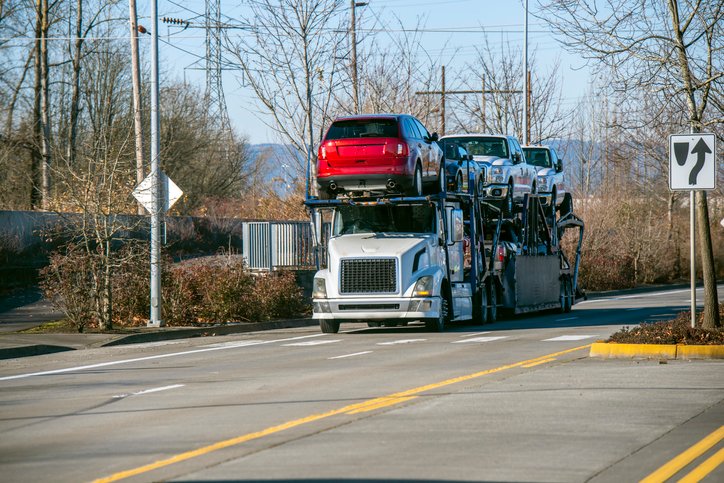
Commercial truckers must all carry certain types of insurance. There is a necessity to insure the truck for liabilities, physical damage, and damage to the cargo itself. However, any requirements by law usually are not quite adequate when it comes to the trucker’s full insurability. Therefore, you need to buy additional coverage. If you are a car hauler, what is the coverage you must have? What do you need, as well?
These are two different questions that car haulers should approach carefully. However, they are closely related. Work with your Georgia trucking insurance agent—they can help you determine the right way to go when insuring the vehicle and cargo.
Why Car Haulers Need Insurance
Car haulers—the trucks that haul other vehicles on their trailers—carry a lot of value with them during every transport. First, there is the value of the truck itself. Then, there is the value of the cargo. Transporting vehicles involves transporting a lot of money; it doesn’t matter if they are new, used, junk or specialty. There is a dollar value attached to each vehicle.
If you are a trucker, or the owner of the trucking business, then you do have a financial investment in both vehicle and cargo. A commercial trucking insurance policy is the place to start, however, you must build upon it to ensure it offers you the best coverage.
The Insurance That’s Most Essential to Truckers
Commercial trucking insurance can contain many different components. Many are essential, and no operator should go without them.
In many cases, certain types of coverage are required by law. Commercial trucking is an interstate industry. Therefore, various insurance requirements exist both in federal and state laws. Your policy might have to include several minimum limits.
The most-common type of required coverage is trucking liability insurance. By federal law—set by the Federal Motor Carrier Safety Administration (FMCSA)—all commercial truckers must carry at least $1 million in liability insurance.
Trucking liability insurance usually contains bodily injury liability coverage and property damage liability coverage. It applies when the trucker is at-fault for a wreck that causes harm to others, like other drivers. If the truck hits another car, this coverage can compensate the other driver for their injuries and the damage to their own vehicle.
Additionally, many truckers are also required to carry cargo insurance. This isn’t something the law requires; rather, it’s something many vehicle owners will require of truckers before they allow you to transport their vehicles. Therefore, consider it essential to your commercial needs.
Additional Coverage
Besides the coverage required of you by the law or clients, you also have an interest in carrying extra coverage. Some of these items might include:
- Trailer insurance: Your trucking policy can extend coverage to your truck’s trailer.
- Bobtail coverage: If you drive your truck for personal use, or while not on dispatch, then this coverage can provide the necessary liability insurance.
- Collision insurance: When the truck sustains damage in a wreck, this coverage can pay for the vehicle’s repairs.
- Comprehensive insurance: Coverage applies to damage your truck sustains in accidents that are not related to wrecks. For example, if the truck catches on fire, then this coverage can apply to the damage costs.
- Uninsured/underinsured coverage: When driving your truck, you might get hit by another vehicle, and the accident might be the other driver’s fault. However, if that driver has no liability insurance, or their policy’s limits aren’t adequate to cover the truck’s damage, then this coverage can apply to its damage.
There are other policies that you might be able to apply to the truck as necessary. Your committed insurance agent can help you determine the correct way to insure the truck and the appropriate cargo.
